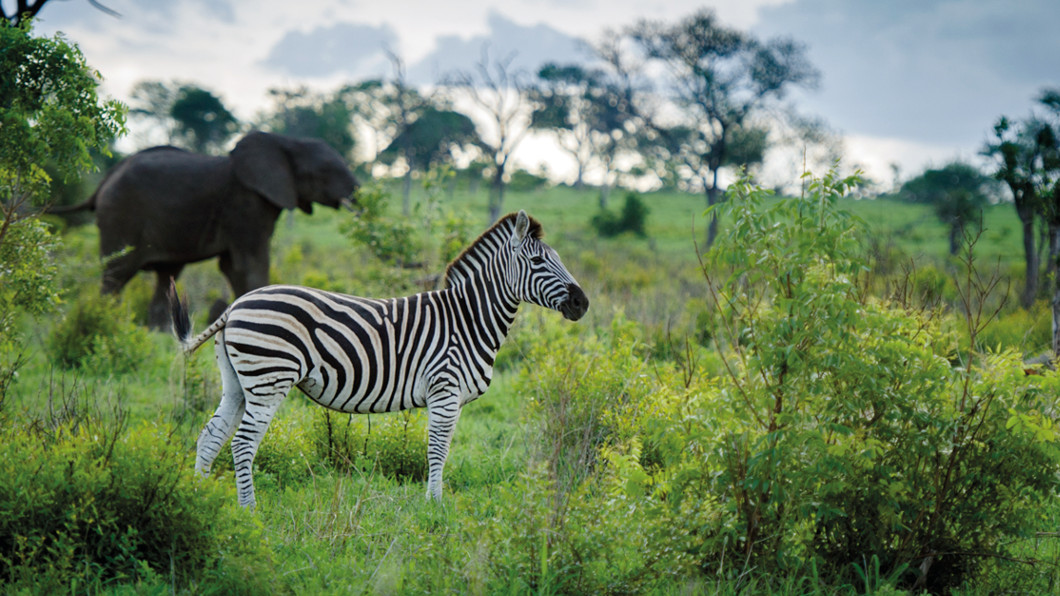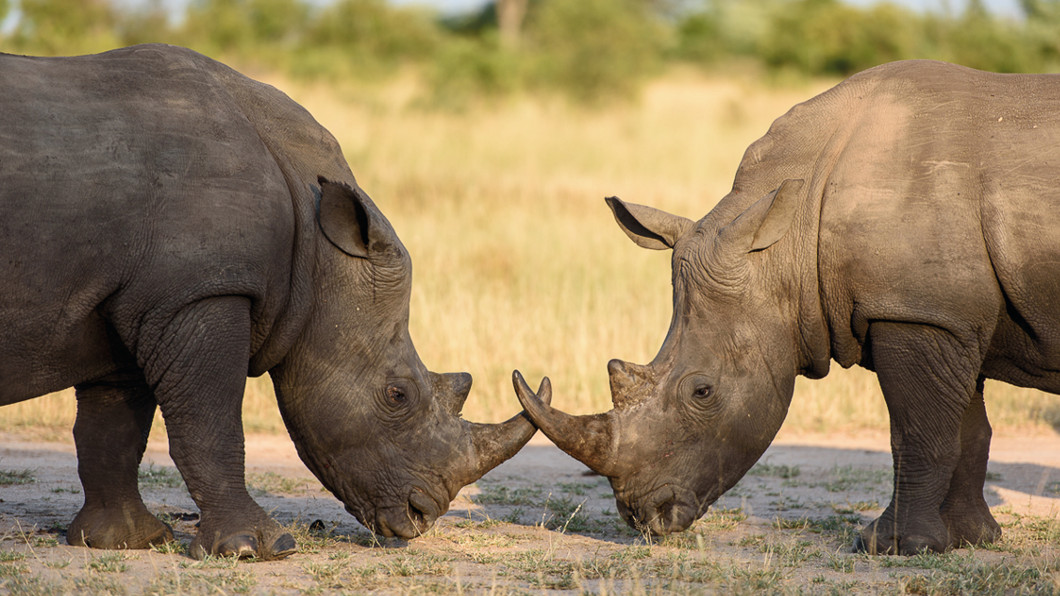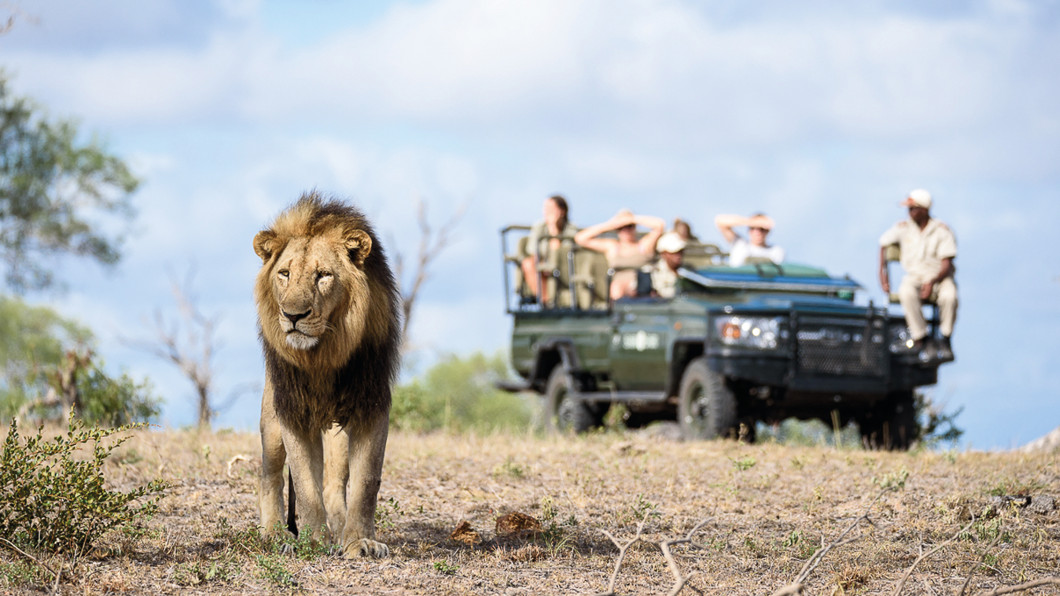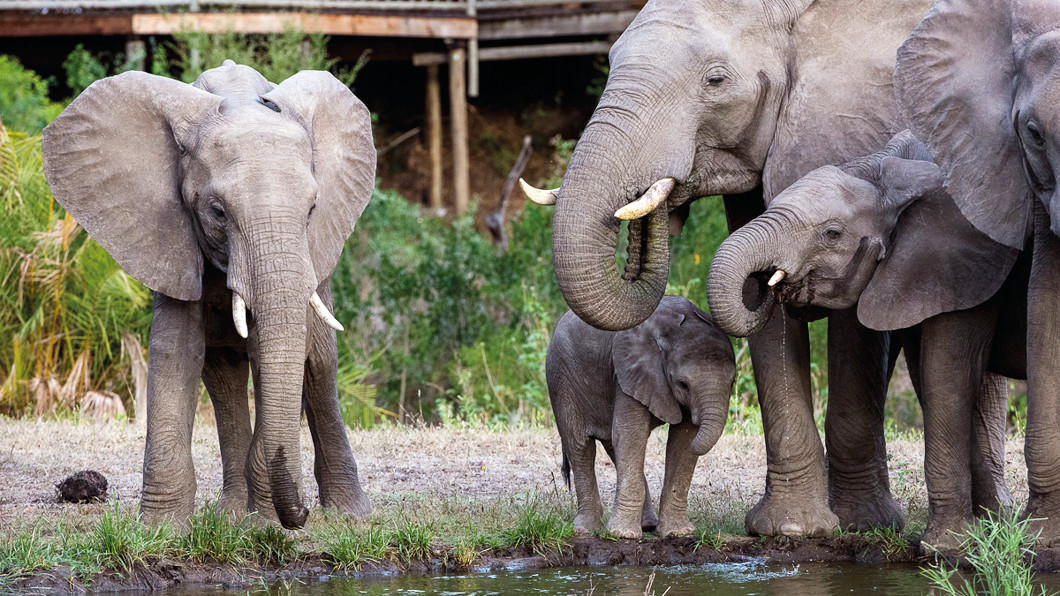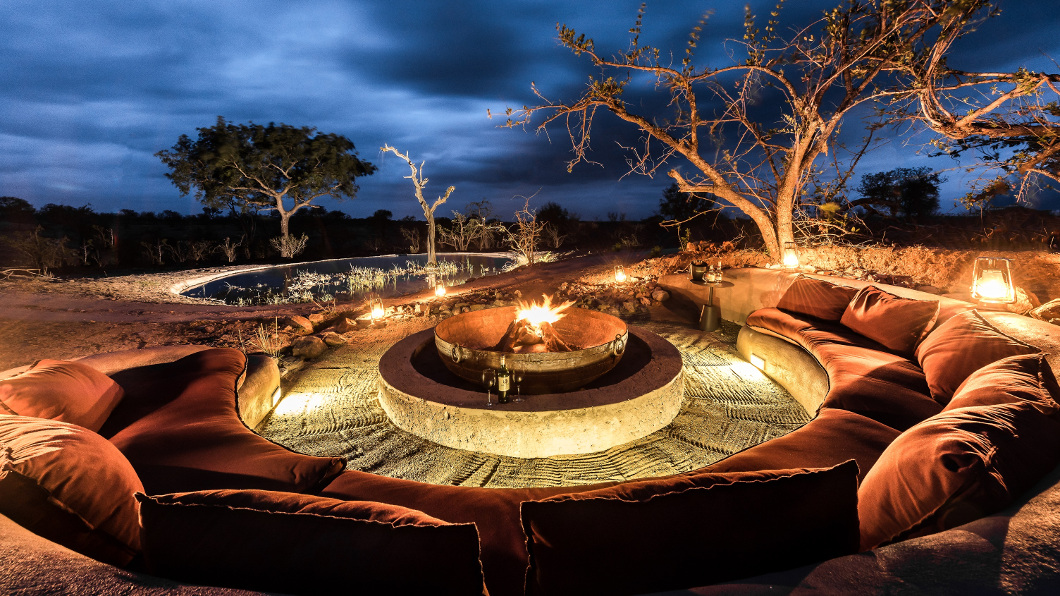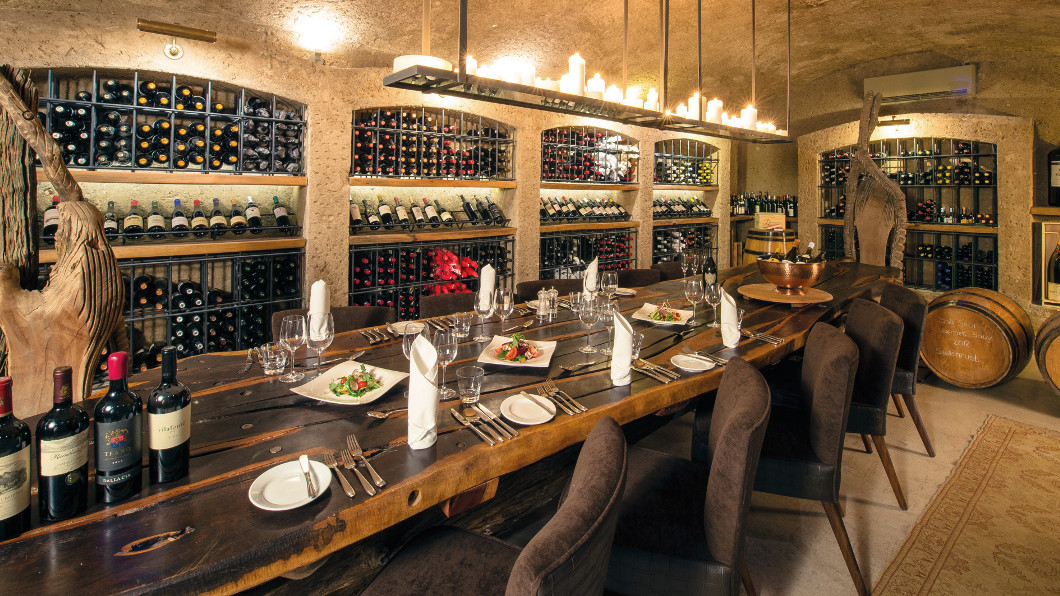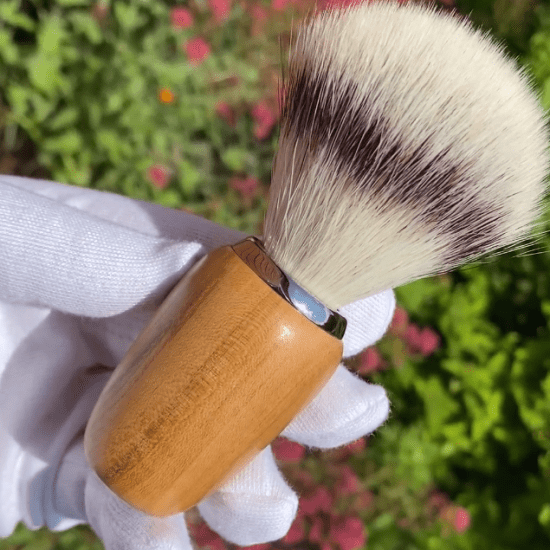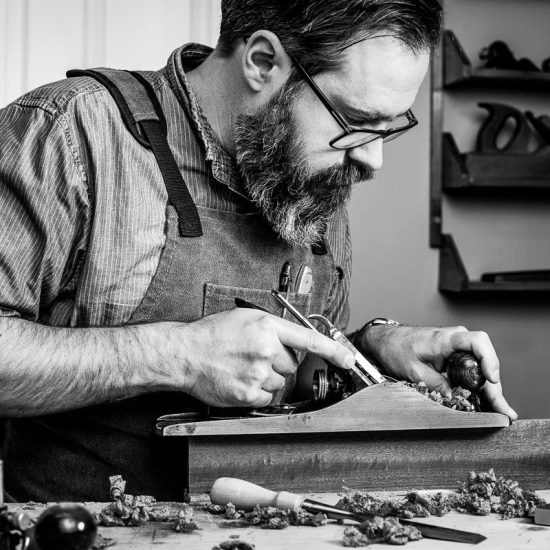Neil Darbyshire enjoys a memorable trip to the Sabi Sabi reserve, on the southern edge of Kruger National Park.
Choosing a first safari can be a tricky business. Do you opt for the basic tented camp, short on creature comforts but with that thrilling sense of authenticity? Or should it be a luxury lodge, with your own garden terrace and plunge pool, where at the end of a bumpy, dusty morning communing with nature in the raw, you can wind down with a good lunch, a glass of chilled Sauvignon, and a relaxing massage in the spa?
At Earth Lodge, it’s possible to experience a taste of both. Located in the Sabi Sabi reserve, near the southern edge of South Africa’s vast Kruger National Park, this kraal of individual, self-contained suites has been designed to be both environmentally friendly and sumptuous.
It was by no means a cheap option, but for me this was a rare opportunity to spend a few days with my sister Karen, in an exotic and, I hoped, unforgettable location. A recently retired art teacher and now almost full-time grandmother, she has had some health issues in recent times and was deserving of some serious R and R. It’s never easy to prise her away from wider family commitments but her younger son William – my nephew – is currently on a two-year secondment in Johannesburg, so we decided to visit. With The Kruger just a 50-minute flight away, it seemed perverse not to take in a safari as well.
I had been on safari before, years ago in East Africa and more recently in the Little Karoo, but for Karen this was her first and possibly only time, so I wanted it to be something special. From the moment we arrived it was clear that it was.
The flight to tiny Skukuza airport was short and pleasant and we were met on landing by Conrad, who would be our guide and ranger for the next three days. A 45-minute Land Cruiser journey later we pulled up at our destination – though there was precious little to see from ground level. Built into a natural hollow so as not to disturb the landscape, entering Earth Lodge gave the initial feeling of going underground. But once inside, it opened into a garden of delights.
The elegant reception area and all the suites open straight on to the bush and, as if on cue, a family of five elephants sauntered by about 200 yards away as we waited to check in. At a watering hole a little further down the hill, hippos groaned, impala grazed and a magnificent fish eagle perched on a dead tree above the water, eyeing up a suitable victim for lunch. For all the trappings of luxury, there was no doubting we were in the wild.
As if to emphasise the fact, Conrad’s first warning (the first of many as it turned out) was that we should not walk between the main lodge and our suites – a journey of three or four minutes – at night without an escort. This seemed a little over-cautious until he told us that one couple had recently returned from dinner to find a leopard on their roof. No further explanation was needed.
The internet pictures had not done Earth Lodge justice. What had looked on the website like a rather drab, concrete finish on the external structure was in fact a cladding of mud and straw. As well as giving an authentic feel, it allowed the place to blend seamlessly into the veld, causing the minimum of disruption to the local flora and fauna.
Welcome champagne downed, bags dumped, extra sun cream applied and we were off on our first afternoon game drive. While some reserves electronically tag their major animals both as a protection against poaching and so they can easily be traced for the tourists, Sabi Sabi prefers the natural approach. Here there is no feeding, no culling and definitely no tagging. If we were to find big game, it would be in the old fashioned way – by tracking.
Perched on the front of the land cruiser, our local tracker Richie read the spoors and when something interesting turned up, jumped into the bush to investigate. Within an hour he was on the trail of a pride of lions, and from the number of pawprints, a big one. Fifteen minutes later he found them – three lionesses and no fewer than 14 cubs, ranging in age from a few weeks to 18 months less than twenty yards away.
Lazing in the shade of an acacia grove, they made an idyllic family scene. The younger cubs suckled, while their elder siblings preened each other between play-fights. To be so close felt like being in the middle of some Attenborough documentary. The big cats paid us little attention at first but after a while one of them had had enough. When she moved in our direction and let out a roar, we decided it was time to get on the move.
We saw all the Big Five at close quarters over the next three days – a large herd of hulking buffalo, rhino plodding through the more lightly wooded areas covered in ox-peckers, lots of elephants and, most excitingly, a mother and daughter leopard. Secretive and largely nocturnal, leopard are hard to spot and generally pretty grumpy. We had a slightly nervy moment when Mum decided to charge Richie as he stood defenceless in front of the vehicle but it was just a warning shot. After giving us all a filthy look, she and her cub stalked off into the privacy of the woods.
There followed zebra, giraffe, all kinds of antelope, warthogs, hyena and the dwarf mongoose. There was also plenty of potential for the bird spotter: giant eagle owls, hornbills, bee-eaters, electric blue kingfishers, the sleek red-backed shrike – now virtually extinct in the UK – and the fabulous lilac breasted roller.
By night we dined either by twinkling light on the lawns, or in the exceptionally well-stocked, oak panelled wine cellar. The food was outstanding, provided by chefs trained at big city hotels and, of course, the quality of South African wine is superb.
At around £1,200 per person, per night, it may seem expensive but that included two game drives a day, walking safaris, all food, wine and other drinks. Only spa treatments and goods from the souvenir shop were extra. All the staff were attentive and engaging without ever being over-fussy and soon became friends.
At the prompting of my sister, we also visited a couple of local schools supported by the reserve, where we were almost overwhelmed by the exuberance and cacophonous welcome of what seemed like an avalanche of small children. Three days, two nights felt exactly the right length of time – just long enough to soak up the magic but not so long that we took it for granted. As we said our farewells to Conrad and Richie before driving back to Skukuza, Karen burst into tears. It was that kind of trip.




